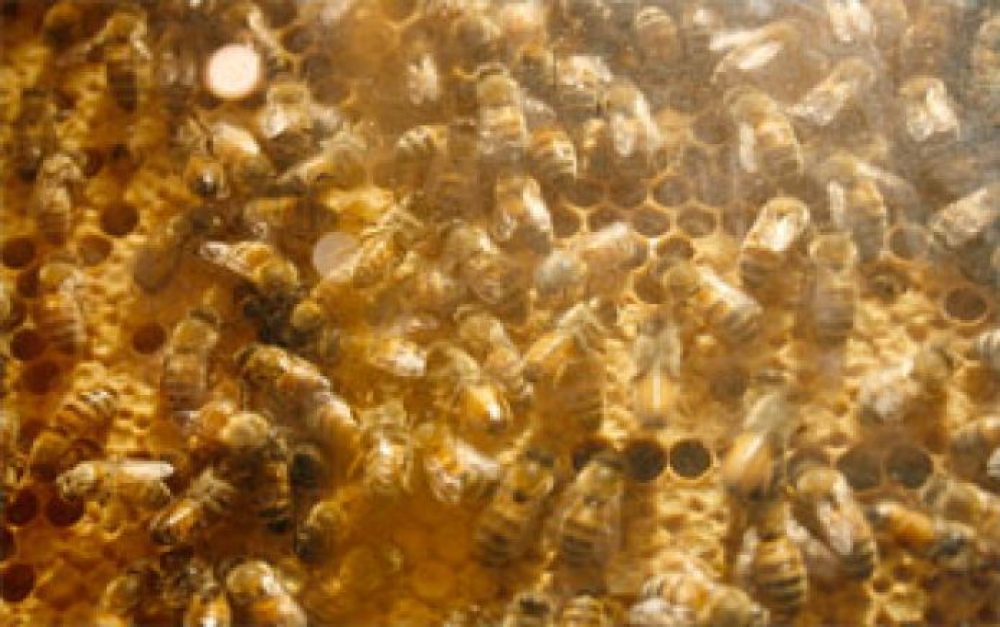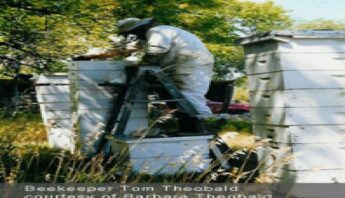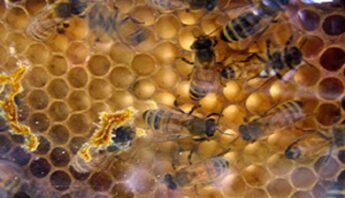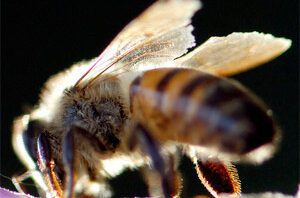Last Friday EPA finally responded to our request that they immediately pull an unpronounceable neonicotinoid pesticide (clothianidin) from the market. Our December 8 letter pointed to a leaked Agency memo proving that the chemical was and is on the market on the basis of an invalid study. EPA's responding letter came after over 10 weeks of silence, in the face of hundreds of thousands of citizens voicing concern.
Clothianidin is of the neonicotinoid family of systemic pesticides, which are taken up by a plant’s vascular system and expressed through pollen, nectar and gutation droplets from which bees then forage and drink. Scientists are concerned about the mix and cumulative effects of the multiple pesticides bees are exposed to in these ways. Neonicotinoids are of particular concern because they have cumulative, sublethal effects on insect pollinators that correspond to Colony Collapse Disorder symptoms – namely, neurobehavioral and immune system disruptions.
According to Dr. James Frazier, professor of entomology at Penn State’s College of Agricultural Sciences:
Among the neonicotinoids, clothianidin is among those most toxic for honey bees; and this combined with its systemic movement in plants has produced a troubling mix of scientific results pointing to its potential risk for honey bees through current agricultural practices. Our own research indicates that systemic pesticides occur in pollen and nectar in much greater quantities than has been previously thought, and that interactions among pesticides occurs often and should be of wide concern.
Dr. Frazier said that the most prudent course of action would be to take the pesticide off the market while the flawed study is redone.
What they said
Nutshell: EPA will re-evaluate clothianidin and other neonicotinoids on an accelerated schedule that begins this year. They also plan to significantly revise their risk assessment process for pollinators by 2012. These are all good processes and commitments that we'll work with beekeepers to watchdog.
The rest of the letter is, according to the beekeeper with whom we broke the Wik-Bee leak story, Tom Theobald, "Orwellian for 'we plan to do nothing.'"
Meanwhile, clothianidin and other neonicotinoids will remain in widespread use in corn, canola, soy, almonds, pome fruits, wheat and other crops across the U.S. Bees and other pollinators will accordingly face another growing season of unabated exposure. Early reports on the 2010/11 winter loss rates are at least as bad as they've been since 2006, when beekeepers began reporting the mysterious collapse of one-third of their colonies over winter.
Every beekeeper we talk to says the same thing: their livelihood, which is the care and cultivation of an indicator species, is on the verge of collapse. What part of "Another winter of ‘more studies are needed’ so Bayer can keep their blockbuster products on the market and EPA can avoid a difficult decision, is unacceptable” was unclear?
We're consulting with beekeepers and partners on next steps. We'll keep you posted.







